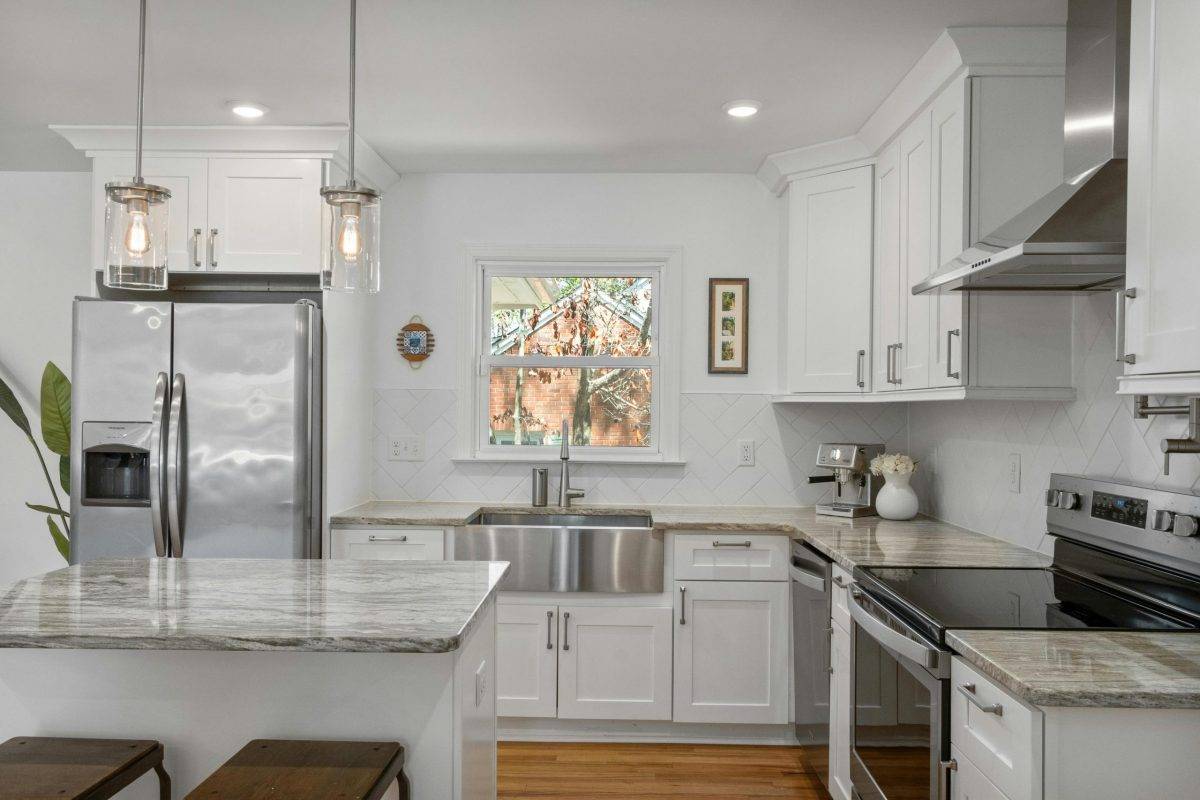Landlord–Tenant Relationships
Building Trust, Clarity, and Long-Term Success. Understanding your rights and responsibilities can prevent costly disputes. Landlord–Tenant Relationships. Whether you’re managing a small rental property in Macon or leasing a multifamily complex, it is important to help ensure a smooth experience for both parties.
The relationship between landlords and tenants is one of the most important—and often misunderstood—aspects of real estate. Georgia’s rental laws are designed to protect both sides, but the key to success lies in communication, documentation, and mutual respect. In this guide, we’ll explore what landlords and tenants need to know to maintain a healthy, professional relationship that benefits everyone involved.
Understanding the Basics: Georgia’s Landlord–Tenant Framework
Georgia law (specifically Title 44, Chapter 7 of the Georgia Code) governs most rental relationships. It sets standards for issues like lease agreements, deposits, maintenance, and eviction procedures.
In Bibb County and the greater Macon area, these same principles apply—but it’s always smart for both landlords and tenants to put everything in writing and understand what’s legally enforceable. Georgia Landlord Tenant Handbook
Top Things Every Landlord Should Know
1. Put Everything in Writing
A handshake might seem friendly, but a signed lease protects everyone. Your lease should clearly define rent amount, payment date, duration, late fees, pet policy, maintenance responsibilities, and grounds for termination.
In Georgia, a written lease is enforceable even if it’s for less than a year, and it’s the best defense against disputes.
2. Know the Rules on Security Deposits
Under Georgia law, landlords who own more than ten rental units must place security deposits in a separate escrow account or be bonded. You must also provide tenants with a written list of any preexisting damages before move-in.
When tenants move out, you have 30 days to return their deposit (minus any lawful deductions for damages or unpaid rent), along with an itemized statement if money is withheld.
3. Respect Privacy and Notice Requirements
While Georgia doesn’t have a specific statute requiring landlords to give notice before entering a property, reasonable notice—typically 24 hours—is standard practice. Respecting privacy fosters goodwill and helps avoid tenant complaints or legal complications.
4. Maintenance Is Not Optional
Landlords are legally required to keep rental units in safe, habitable condition—this includes working plumbing, heating, electrical systems, and structural safety.
Quick response to maintenance requests not only keeps tenants happy but protects the value of your investment.
5. Understand Eviction Procedures
If rent isn’t paid or lease terms are violated, landlords must follow Georgia’s formal eviction process (known as a dispossessory action).
First, provide a written demand for possession or rent.
If the tenant doesn’t comply, you can file in the Magistrate Court of Bibb County.
Never attempt “self-help” evictions—changing locks, removing belongings, or shutting off utilities is illegal and can result in penalties.
6. Screen Responsibly and Fairly
Fair housing laws prohibit discrimination based on race, color, religion, sex, national origin, disability, or familial status.
Use consistent screening criteria for all applicants—credit, income verification, and rental history—and keep documentation to prove fairness if ever questioned.
7. Keep Communication Professional
Treat your rental like a business. Maintain written records of all notices, requests, and agreements. A courteous, professional approach encourages cooperation and long-term tenancy, which saves time and money over the long run.
Top Things Every Tenant Should Know
1. Read the Lease Before Signing
Never sign a lease without understanding it completely. Review all details—rent, duration, maintenance expectations, fees, and termination clauses.
Ask questions before committing. Once signed, a lease is a binding legal contract, and courts will enforce it as written.
2. Document the Condition of the Property
Before moving in, take dated photos and complete a move-in inspection checklist. Compare it with the landlord’s list of existing damages. This will protect your deposit when you move out and prevent disputes over what was preexisting.
3. Pay Rent on Time
In Georgia, there’s no mandatory grace period unless your lease provides one. Even a single late payment can lead to eviction proceedings.
If you encounter hardship, communicate immediately. Many landlords will work with tenants who are upfront and proactive.
4. Know Your Right to a Habitable Home
Landlords are required to provide safe and livable housing. This means functioning plumbing, heating, electricity, and a structurally sound building.
If a serious repair issue arises, notify your landlord in writing. Never withhold rent without consulting an attorney—Georgia courts can still order eviction if rent isn’t paid.
5. Understand Security Deposit Rules
Always get a written receipt when you pay a deposit. At the end of your lease, the landlord must return it within 30 days, less any valid deductions.
If you believe money was wrongfully withheld, you can pursue a claim in Magistrate Court, often without needing an attorney.
6. Follow Lease Terms on Guests and Pets
Many leases limit long-term guests or require pet deposits. Violating these terms can lead to eviction or non-renewal. Always request permission for exceptions and get it in writing.
7. Provide Proper Notice Before Moving Out
If you’re on a month-to-month lease, Georgia law requires 30 days’ notice before moving out. Fixed-term leases typically specify the exact notice period.
Leaving early without notice may forfeit your deposit or expose you to additional rent liability.
Building a Positive Relationship
The best landlord–tenant relationships are built on mutual respect and proactive communication. Here are a few practices that benefit both sides:
Keep written records: Emails or text confirmations can clarify expectations.
Respond promptly: Address maintenance requests and questions quickly.
Stay professional: Treat all interactions like a business relationship.
Know your local resources: The Macon-Bibb County Housing Authority and the Georgia Department of Community Affairs both offer valuable information for renters and property owners.
Dispute Resolution and Mediation
When disagreements arise, court isn’t always the best first step. Many disputes can be resolved through mediation, where a neutral third party helps both sides find common ground.
The Georgia Commission on Dispute Resolution maintains resources for mediation programs statewide. In Macon, you can often request mediation through Bibb County Magistrate Court before filing a lawsuit.
Mediation tends to preserve relationships, save time, and avoid public court records—making it a smart option for both landlords and tenants who want to maintain professionalism.
Final Thoughts
A rental property isn’t just an investment—it’s a living space where someone builds their daily life. Successful landlord–tenant relationships depend on a balance of rights, respect, and responsibility.
For landlords, that means clear documentation, compliance with Georgia law, and good communication. For tenants, it means paying on time, caring for the property, and honoring lease terms. When both sides uphold their part of the bargain, it leads to stability, trust, and long-term value for everyone involved.
About Joanna “JoJo” Jones
As one of Macon’s most trusted real estate professionals, Joanna “JoJo” Jones helps investors locate properties. Navigate Georgia’s real estate market with confidence. Whether you’re managing property or looking for your next rental home, JoJo offers local expertise and insights to help you make informed decisions every step of the way.
Contact JoJo today for trusted guidance in both residential and commercial real estate across Macon and Central Georgia.
Disclaimer: The information provided in this article is for general educational purposes only and should not be considered legal advice. Laws and regulations may vary by city and situation. If you are ever unsure about your rights or responsibilities as a landlord or tenant, consult a qualified, licensed real estate attorney.




